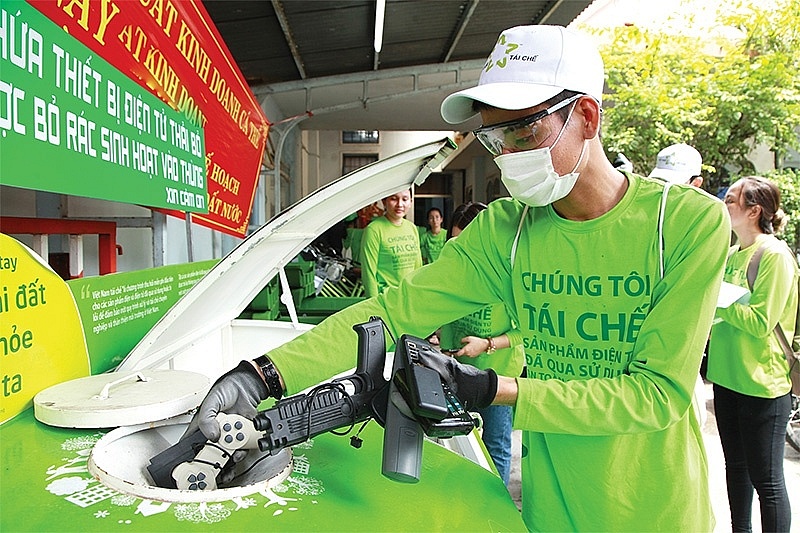Vietnam approves circular economy development scheme
 |
| Businesses are heading towards circular economy development |
The scheme aims to reduce the intensity of greenhouse gas emissions per GDP by at least 15 per cent by 2030 and supports the target of achieving net-zero emissions by 2050.
By 2025, the country also aims to reuse, recycle, and treat 85 per cent of plastic waste generated, reduce 50 per cent of the plastic waste in the seas and oceans, and reduce the volume of non-biodegradable plastic bags and disposable plastic products that are used in daily life.
The volume of municipal solid waste collected and treated in line with the standards and criteria of circular economy models should reach 50 per cent by 2030, with 100 per cent of urban organic waste and 70 per cent of rural organic waste being recycled.
The scheme's firm measures are set to increase community awareness about the circular economy and promote its development among businesses and residents.
The building of specific circular economy plans and integrating them into strategies in cities and provinces around the country is essential.
The other task is to boost cooperation with international partners and donors to seek opportunities to increase access to knowledge, expertise, and resources for circular economy development through specific projects, technology, and services.
The country will also intensify public-private dialogues about the circular economy to promote corporate social responsibility and help businesses solve their problems in this area.
Legal frameworks and policies to facilitate development will be completed for prioritised sectors so as to implement a pilot programme with the required human resources.
What the stars mean:
★ Poor ★ ★ Promising ★★★ Good ★★★★ Very good ★★★★★ Exceptional
Themes: COP26 - Together for Our Planet
Related Contents
Latest News
More News
- VNPAY and NAPAS deepen cooperation on digital payments (February 11, 2026 | 18:21)
- Vietnam financial markets on the rise amid tailwinds (February 11, 2026 | 11:41)
- New tax incentives to benefit startups and SMEs (February 09, 2026 | 17:27)
- VIFC launches aviation finance hub to tap regional market growth (February 06, 2026 | 13:27)
- Vietnam records solid FDI performance in January (February 05, 2026 | 17:11)
- Manufacturing growth remains solid in early 2026 (February 02, 2026 | 15:28)
- EU and Vietnam elevate relations to a comprehensive strategic partnership (January 29, 2026 | 15:22)
- Vietnam to lead trade growth in ASEAN (January 29, 2026 | 15:08)
- Japanese business outlook in Vietnam turns more optimistic (January 28, 2026 | 09:54)
- Foreign leaders extend congratulations to Party General Secretary To Lam (January 25, 2026 | 10:01)

 Tag:
Tag:
























 Mobile Version
Mobile Version